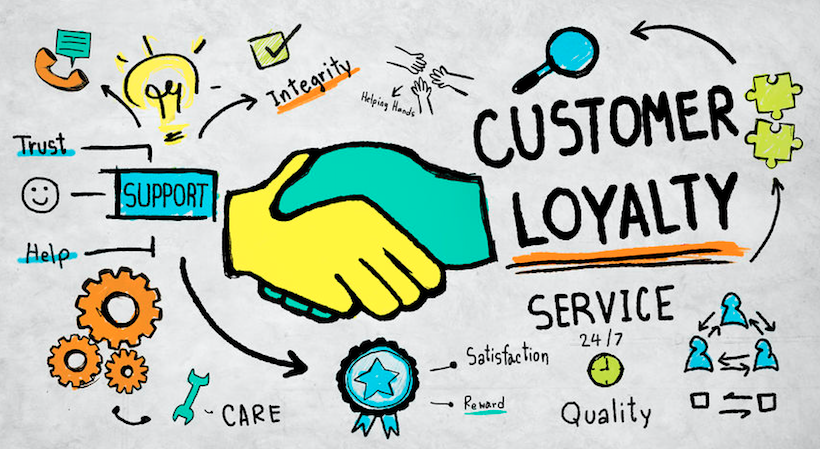Many minorities are starting businesses, have been running one for a while, or are well-established in their industry. Despite their qualifications and eagerness to be part of a growing economy, however, there are some obstacles unique to them.
Those obstacles contribute to stark disparities in income and business ownership.
For example, a LendingTree analysis of the U.S. Census Bureau 2021 American Business Survey showed that white Americans own 85.6% of U.S. business with employees. And even though Black Americans make up 12.6% of the population, they own only 2.5% businesses with employees, the study showed.
The study showed as well that men own most of those businesses—63.2%, with another 14.5% co-owned by men and women.
The U.S. Census reveals that minorities, specifically Hispanics, Asians and African Americans, have a household net worth below that of their Caucasian peers.
It’s reasonable to assume that this disparity affects many aspects of daily life, not excluding entrepreneurial efforts, where it is expected that a small business owner will use some of their own assets to fund their company – at least initially.
With minorities at a disadvantage, many federal, state and private programs have turned their focus to helping create a level playing field for disadvantaged groups who want to start a business. Among those are small business loans. Here are the ones focused on assisting those from disadvantaged groups, including minorities, tribes, women, and veterans, and economically-challenged rural owners.
Sign up for 12 new, free courses on topics from SBA loans to influencer marketing. Verizon Small Business Digital Ready.
Business Center for New Americans
If you haven’t heard of this organization, it’s smart to research all that it does. The Business Center for New Americans started in 1998 with just three loans totaling $30,000. Today, it offers thousands of loans to refugees and qualified immigrants looking to start their own business. They have lent over $21 million!
Their loans have a rate of between 8.25% and 10%, depending on the amount. Loans above $3,000 must be guaranteed by a co-signer, and the borrower’s equity in the business must match 20% of the value of the loan. Those who haven’t declared bankruptcy in the past year and can show sufficient cash flow are eligible. There is no minimum credit score to apply, but the lender likes to see a strong willingness to repay debt.
The loans range from $500 to $50,000 and must be repaid within six months to three years. There is a closing fee of 2%, as well as a loan application fee ranging from $25 to $50, depending on the size of the loan. This program is one of the most notable offerings of the BCNA, who makes it their mission to equip immigrants, refugees, women and minority business owners for the growth of their companies.
SBA 8(a) program for government contracting
While not a source of funding, the SBA 8(a) program works with those who identify as a disadvantaged business enterprise and pledges to award a certain number of contracts to these qualified businesses. Their goal is to give 5% to these small companies. To qualify, the business must be 51% owned and controlled by U.S. citizens who meet the definitions of being a disadvantaged group.
Certification is required before participation; only those who have less than $250,000 in personal net worth, an income of less than $250,000 per year, asset value of under $4 million, and be a person of good character who is involved in the day-to-day operations of the business.
In addition to having access to that set-aside block of contracts, qualified SBA 8(a) businesses can receive help from a Business Opportunity Specialist who can assist with the federal contracting process. Access to the SBA’s mentoring program is also given, as well as ongoing management and technical assistance that can help develop the business. This might include training, marketing guidance or leadership development.
SBA 7(a)
The Small Business Administration has been a leader in the efforts to provide affordable and flexible funding to a variety of businesses, including those owned by minorities. Their most notable loan, the SBA 7(a) loan stands out from the rest as one that provides both a significant amount of money to qualified businesses and having some of the more generous payment terms.
To qualify for an SBA 7(a), a business owner must have an annual gross revenue of over $120,000, have reliable credit and show a demonstrated ability to pay back the loan. The proceeds may be used for working capital, refinance debt or to purchase equipment. The interest rates are low for the money, and the loan amounts range from $30,000 to $5 million. The loan is generally not available to non-profit companies. It is among the most sought-after funding options available through the SBA and is available to all qualified U.S. business owners – not just minorities.
Related: Top Small Business Grants for Women and Minorities
SBA Microloan
For small businesses that aren’t quite as established or need less money than a traditional SBA 7(a) loan, the SBA microloan program may be a suitable option. Open to anyone regardless of ethnicity or race, successful applicants will have access to smaller loans of up to $50,000 with interest rates that rival the best credit cards (between 8% and 13%.) Borrowers have up to six years to repay the loan, and the qualifications are a bit less rigorous as those for the larger term loans. There is also no need for collateral for the smallest loan amounts.
Applicants can use the money to buy equipment and supplies for their business, as well as use it for working capital. It may be used to refinance debt, in some instances. It can’t be used for real estate, or to improve part of the business owners’ home – even if it’s being used for business purposes. Unlike some other types of funding, microloans may be obtained by “non-citizens lawfully in the U.S. with an appropriate work visa.”
Minority Grant Programs
While the SBA doesn’t generally offer minority grants, they do exist. Use the Grants.gov search tool to input your business info and find out what business development programs you may qualify for. The Department of Commerce works with the Minority Business Development Agency (MBDA) to help minorities seek the funding they need. While they don’t give out grants directly, they do organize funding opportunities, such as grant competitions that are funded by outside investors. If you are in search of new opportunities, reaching out to them may be a good first step.
SCORE
The nation’s largest business mentor network is SCORE. The free program matches entrepreneurs with experienced business mentors who can help with the specific struggles business owners face, from creating a business plan to finding funding. SCORE is open to all businesses, not specifically those in a minority group. One perk of the business development program, however, is that the right match could help you learn about those opportunities that are relevant to minority business owners, including many networking options and financial advice that can lead to lending opportunities later on.
The 10,000 volunteer mentors are well-versed in funding struggles and help create a supportive community for businesses of all sizes. They can chat with participating business owners on the phone, via email, or even in-person to help you figure out the best type of loan or grant for you and your unique company. These retired business owners and current leaders, including top executives, are just the start of what SCORE offers. The group also puts on training events, offers marketing plans, and gives their members access to templates for many of the common milestones today’s minority-owned businesses need to achieve.
African American Loan Fund
This North Carolina fund offers loans from $25,000 to $250,000 with interest rates of no more than 10%. The money can be used for working capital, buying a business, building improvements, refinancing debt, buying equipment, or purchasing owner-occupied commercial real estate. Borrowers will also receive financial counseling and technical assistance, as well as marketing and general business support.
Other loan funds are popping up nationwide. If you are an African American business owner, reach out to your local economic development center to see what may be coming to an area near you.
What about startup loans for minorities with bad credit?
If your credit is less than stellar, you still have options. If you struggle with a bad credit score, you should first seek out ways to raise your profile.
Get access to your free personal and business score through a site like Nav, then take steps to elevate it. Sometimes, applying for a credit card with lower application requirements can get you access to small amounts of cash in the meantime. While you make on-time payments to this line of credit, your score will increase, making you a better candidate for the more traditional business loans offered by lenders. If you have a minority-owned business and you are also a refugee or immigrant, you may qualify for a loan (even with bad credit) through the Business Center for New Americans.
Who is eligible for minority business loans?
For the purposes of a loan, the word “minority” is rarely used. Instead, organizations (such as the SBA) and financial institutions will use the phrase “disadvantaged” or specifically lay out certain minority groups that are eligible for preferential consideration when going through the lending process. While there are some independent groups that offer funding for specific minorities, the bulk of what’s available is less specific.
Most federal programs define socially disadvantaged individuals as those who have “been subjected to racial or ethnic prejudice or cultural bias within American society because of their identities as members of groups and without regard to their individual qualities.” This disadvantage must have been outside their control.
Members of designated groups may also qualify. This presumes that the following people groups are socially disadvantaged: Black Americans, Hispanic Americans, Native Americans, Asian Pacific Americans and Subcontinent Asian Americans. The SBA can, at its own discretion, designate other groups. The individual must also demonstrate that they have held themselves out and is identified by others as one of the disadvantaged groups if the lender requires it.
Here are the groups most commonly benefitted by the guidelines for loans that take your demographic as a socially and economically disadvantaged business into consideration.
Tribes
There is a whole host of resources available to tribal members, provided you do, in fact, count yourself as part of a tribe or serve a tribal population. These resources can best be found through the SBA’s Office of Native American Affairs (ONAA) and include information on the SBA 8(a) award program, loans, grants, and other empowerment programs designed to equip Native-owned businesses with the funds and support they are eligible to receive through various federal and state programs. Local development offices will also have additional programs. Don’t discount reaching out to any local tribal business development centers for hyper-local funding info, as well.
Minorities by race or ethnic background (African American, Hispanic, etc.)
These programs assume that you identify as part of a demographic of minority-owned businesses, particularly one that has been discriminated against or may have difficulty in accessing resources that Caucasians have traditionally been able to procure. Remember that the groups offering these business loans for minorities may ask for documentation to support that you are disadvantaged. You will also need to prove that you are the owner of the minority-owned business for which you are obtaining funding.
Additional groups that may qualify for special lending programs
Minorities aren’t the only groups that may have opportunities to access funding apart from the general population. These two groups have programs designed to give them a boost, as well. (Bonus points if you qualify for all of them!)
Women
Various government groups have considered a woman-owned business to be one that is 51% women-owned and operated. For minorities who also happen to be women entrepreneurs, there is an advantage when competing for contract bids. Similar to the SBA 8(a) program for minorities, the Women-Owned Small Business Federal Contracting program aims to give women-owned companies easier access to the government contracts given to small businesses.
This is not a set of minority business grants for women, which are – admittedly – harder to find. As a minority that’s also a woman, however, your chances of getting government work and having access to the mentoring and resources they provide is much better.
Veterans
One additional way minorities can gain an advantage in seeking out small business loans is to apply for one of the many business loans for veterans. The SBA has made it beneficial for veterans to apply for their loans, through reduced fees as part of the Veterans Advantage Program. Fee relief can be offered to small businesses that are at least 51% owned and controlled by an honorably discharged veteran, active-duty members that are eligible for the TAP program, service-disabled vets, reservists, and active National Guard members. The SBA also extends these fee reductions to the spouse of eligible veterans, as well as the widowed spouse (as long as the service member died in active duty or due to a service-related cause).
Since fees can be significant, especially for larger loans, this perk is something to look into for any minority who also happens to be a veteran-owned business.
Rural residents
Those living in underserved areas both economically and from an infrastructure standpoint may be eligible for small business loans or grants that aren’t available to the surrounding community. Rural development loans benefit a wide range of groups, with the goal being to bring necessary services and businesses to areas that are often difficult to get into.
Because of the lack of services in some of these areas, the use of funds will inevitably assist the minority populations that live there. From daycares to grocery stores to health centers, rural development programs help ensure event distribution of much-needed services to those spaces between more popular urban areas. Women, tribal members, veterans and ethnic minorities can all enjoy the perks of having access to better rural resources through these programs often made available through Community development financial institutions (CDFIs) and the SBA’s Community Advantage loan program.
Sign Up: Receive the StartupNation newsletter!
Frequently asked questions
There are some significant opportunities for minorities to have their loan application reviewed favorably and get that funding needed for their new or established minority-owned business. Here are some other questions commonly asked by entrepreneurs looking for cash for their endeavor.
What black minority business grants are available?
Business grants aren’t the same as loans, as they don’t have to be paid back. They are also more difficult to obtain, as the competition can be fierce for what is essentially free money. To get an idea of what federal grants you may qualify for, consider searching the database at Grants.gov. It should be noted that, while the federal government doesn’t explicitly offer grants to minorities in most cases, many programs are specifically offered to those of tribal affiliations and who serve tribal communities.
To access grants for black business owners, specifically, you might find these on a local level with private business development organizations that seek to serve the African American population specifically.
How can I find start up business loans for minorities with bad credit?
Government and economic administrations, such as the SBA, generally do not seek out applicants that have a high credit risk, and minority-owned businesses with a bad credit score may struggle to find business financing. It’s also very uncommon to find lenders willing to finance small businesses considered in the startup phase. They like to see that you have a good track record and the sales to back up what will eventually be years of on-time loan payments.
You may have to consider alternative means of funding, designed specifically for those with bad credit. Credit cards, vendor financing, a cash advance, or merchant credit lines are all options that will have higher interest rates and often larger fees associated with them. If you use them wisely, however, making your payments in a responsible manner and just using what you need, you can slowly build your personal credit and your business credit score to a point where those more attractive minority small business loans are within reach. This advice applies to everyone, whether you are in a minority group or not.
This article originally appeared on Nav.com by Linsey Knerl, and was first published in August 2019.






